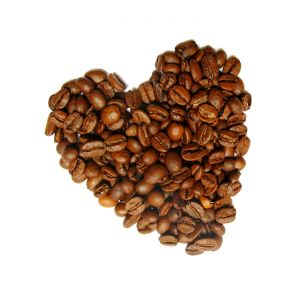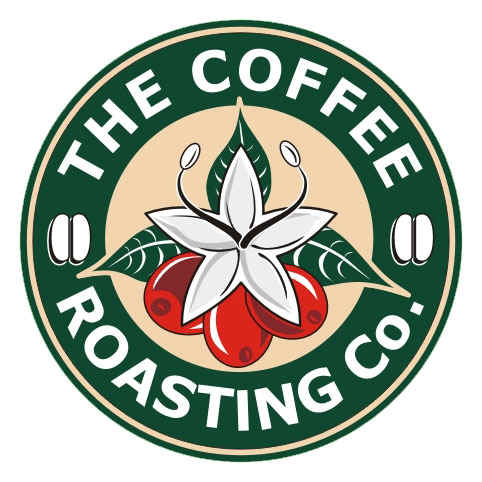Newsflash 18 August 2011: new harvest of Mandheling has arrived


 ®
Est 3
®
Est 3
|
Newsflash 18 August 2011: new harvest of Mandheling has arrived
|
|
|
What makes the coffee from The Coffee Roasting Co. special? In our roastery on Lourensford farm we do things differently. We focus on sourcing the highest quality single-origin handpicked highland Arabica green beans from the world's prime gowing regions - the strong, unique tastes in coffee - and we make them available within the day of roasting. Handpicking only selects the ripe red coffee fruit, which results in a pure taste. Our clients know exactly where their coffee comes from. We don't create "secret" blends (yes, no "mocha-java" blend) - we use our single origin coffees as the components of our blend and publish it here. We use the latest & best state-of-the-art infrared drum-roasting technology and roast the coffee in small batches by hand with skill. We only air-quench. We go to great lengths to get the roasted coffee to our coffeeloving clients as soon as possible after roasting using our roast-to-order system - we deliver daily roaster-to-door. We always label our coffees with the roasting date (which, for the coffee consumer, is far more useful information than a "best before" date: for best taste coffee should always be consumed within the first two to three weeks after roasting). In short, we do it entirely differently. Which are your biggest selling coffees? Currently in 2010 our four best selling coffees are: Limu, Mandheling, Switch House Blend and Cardinal Sins Award Winning Blend. Why only Arabica coffee? There are two main commercial species of coffee: Arabica and Robusta. Robusta is prolific, producing twice the amount of coffee per tree in half the time with twice the amount of caffeine per bean. It's a common filler in supermarket blends of coffee. The green Rubusta coffee generally sells at one fifth the price that the Coffee Roasting Co. pays for its high-altitude premium green Arabica beans. However, trust us, you don't want to taste the woody Robusta coffee. What is defined as speciality coffee? Speciality coffee is defined as a coffee that has no defects and has a distinctive flavour in the cup. About 13% of coffee now drunk in 2008 the USA is speciality coffee.
Why handpicked? The coffee bean tastes best when it's harvested just ripe (like all other fruit, in fact). This is easy to see as the coffee cherry is bright red. Green coffee tastes "nutty", over-ripe coffee tastes "vrot" and sour. The coffee tree ripens unevenly with the same branch having cherries in several stages - with several sweeps of a handpicking harvest only ripe coffee is selected; mechanical harvesting removes everything at one time. Why high-altitude grown? The coffee tree grows slower and the coffee cherries generally take about three months longer to develop from flower to fruit. Because of the slower growth the small, hard dense coffee bean is far more intensely flavoured and like wine, picks up the characteristics of its terroir better. Lowland coffee, common to places like Brazil, grows fast and is also often harvested mechanically in one harvest. The lowland Arabica coffee bean has a low density and has much less taste (it's also a lot cheaper).
Why the big deal about freshness? Roasted coffee is very much like baked bread or popcorn: it goes stale. Stale bread or popcorn can be consumed safely and provides sustenance, but does not taste the best. Stale coffee is much the same. The Coffee Roasting Co. only roasts the coffee after we receive an order - our roast-to-order system where the size of our orders we have in hand determines what mass of each coffee we roast each day. We only store green coffee beans (which store well) - it's always roast-to-go or delivered daily roaster-to-door. We label all our coffees with the roasting date so our coffeeloving customers always know how many days old our coffee is when they drink it. Storing in a fridge or deep-freeze? The first prize is to consume coffee in the first two weeks after roasting. If you are intent on storing coffee the best is to store the coffee is as whole beans in an airtight container in the deep-freeze.Only remove the portion of the beans that you require, keeping the jar in the deep-freeze and hence not running the risk of water condensation on the beans (which brews the coffee). The fridge is a dangerous place - the coffee runs a higher risk of condensation and of picking up other odours from the fridge (imagine garlic-flavoured coffee). Rather then store the coffee in an airtight container at room temperature. I have an espresso machine: do I need special espresso bean blends? Espresso is just one of many ways of brewing coffee. In fact, because of the water pressure generated by espresso machines, it provides a very satisfying extraction of most coffees, typified by the rich crema. All our coffees taste good when brewed with an espresso machine (we test every coffee on our own Carimali and Isomac machines). We recommend the Coffeezania blend of the Santos, Limu and Seville. For a single-origin coffee the Limu is delicious, particularly in a latte. The Atractiva and the Cardinal Sins blends also make a delicious full-bodied espressos. The Harrar makes great straight espresso with good crema (dry processed coffees produce rich crema). Our customers have added a new dimension to their espresso enjoyment and entertainment and create their own espresso blends from some of the best single-origin coffees available. And, NO, you do not need robusta beans in espresso coffee. Can you recommend some books on coffee? The Joy of Coffee by Corby Kummer - most recommended as an introduction Coffee - a guide to Buying, Brewing and Enjoying by Kenneth Davids (5th Ed) The Perfect Cup by Timothy James Castle Coffee by Philippe Boe The Coffee Companion by Jon Thorn Uncommon Grounds - a history of coffee by Mark Pendergrast How to taste coffee? There are a few basic things you want to look out for when cupping (tasting) coffee. First smell the gournd coffee and note the fragrance and then smell the cup and note the aroma. Coffee tasting is all about smell. See the right hand side of the tasting wheel below for the specific aromas to look out for in coffee. The coffee should tell you most about itself before you drink it. Then take a big slurp of coffee, covering your entire tongue (make sure it's cool enough first) and look for he following: acidity (like the difference between flat and sparkling water or sweet and dry wine); overall flavour and specific flavours (LHS of flavour wheel below); body (the weight or syrupiness of the drink); and finally the aftertaste.
Why no South African coffees? The coffee plant is a tropical tree from Ethiopia's rainforest - it cannot be cultivated in over ninety percent of South Africa due to frost, which kills the plant. About 100 tons of coffee are produced in South Africa each year; which is tiny compared to the seven million tons produced worldwide and even compared to the 27,000 tons of annual consumption in South Africa. However, so far none of it matches to the great tastes available from the prime tropical growing regions. Why so many coffees from Ethiopia? The coffee tree is indigenous to the Ethiopian highlands (Limu is essentially wild coffee) - this is where all Arabica coffee in the world originally comes from. It's the best natural high-altitude rain forest region on the whole planet to grow coffee - the Arabica trees are self-propagating and wild here. Hence the famous and unique flavours that come from here. What are the basic rules of brewing coffee? Use 60g of freshly-roasted, freshly-ground quality Arabica coffee per litre of good tasting water heated to no more than 92 degrees C or less (the golden hints of brewing).
Do the Coffee Roasting Co. coffees rank in the world of coffees? Virmax, our Colombian producer, has again in 2010 won the award for the word's best coffee producer. We stock the La Piramide, Los Naranjos, Quebradon and Organica from Virmax. We currently have three coffees in the world's top ten coffees as determined by the Speciality Coffee Association of the USA: Los Naranjos (winner), Yirgacheffe (runner-up) and La Piramide (No. 8).
Where can the coffee be tasted other than the roastery? Here are some restaurants that stock our coffee: 96 Winery Road (021-842-2020) / Steffanie's Place Restaurant on Irene Road, Somerset West (021-852-7584) / Henri's Restaurant on Main Road, Somerset West (021-852-6442) / Waterkloof, Sir Lowry's Pass Village Road (021-858-1292) / Wang Thai, Old Stellenbosch Rd, Somerset West (021-852-8414) / Bird's Cafe on the corner of Bree and Church serve our organic African coffees (021-426-2534) / One of the coffees at Terroir Restaurant on the Kleine Zalze Estate is our Quebradon (021-880-8167)
|
|